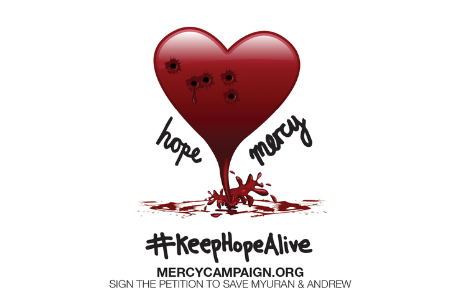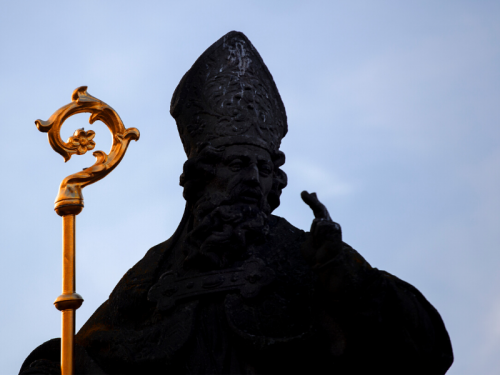The Book of Job in the Hebrew Scriptures is one of the most misunderstood books in the Bible. And yet, when we see the purpose of God in placing this book in Scripture, its rich meaning comes alive.
Jesus’ half-brother James summarises the story: “Behold, we consider those blessed who remained steadfast. You have heard of the steadfastness of Job, and you have seen the purpose of the Lord, how the Lord is compassionate and merciful” (James 5:7-11).
The word steadfast comes from the Middle English word meaning, “to be fixed in place.” That is, being steadfast is holding on when you feel like letting go. That’s what Job did and 4,000 years later we’re still talking about him and learning from his story. He was steadfast in the difficulties he faced and we consider him blessed as a result.
Job is probably the oldest book in the Bible. It could date back to the first part of the 2nd millennium B.C. The book contains some of the most difficult and archaic Hebrew in the Bible. Even the name Job is known to be an ancient name. Along with the failure to mention the Hebrew’s Covenants or Law, Job probably dates back to the time of the patriarchs, around 2100-1700BC.
It’s likely that Moses discovered the book while he was in Midian (NW Arabia near the land of Uz where Job is said to come from) and sent it to the enslaved Hebrews in Egypt to bring them hope and encouragement in their suffering so they too would learn that “the Lord is compassionate and merciful.”
There is disagreement amongst Bible scholars as to whether Job tells a real story or a fictional one. There are good arguments for both. Some suggest the opening line of the Book of Job, “In the land of Uz there lived a man whose name was Job,” is the ancient equivalent of, “Once upon a time, in a land far away…” Similarly, the declaration at the end of the book that God blessed the final 140 years of Job’s life is the equivalent of, “and they all lived happily ever after.” The fictional argument also draws upon the fact that most of Job (3:1-42:6) is poetic. Like Jesus’ parables Job may not be a true story but it is certainly a story that teaches truth.
Personally I lean towards Job being a fictional story. If it isn’t we run into the theological problems of Satan waltzing in and out of God’s presence and twisting God’s arm to let him firstly destroy all that Job has (including all of his children) and then destroying Job’s health (see Job 1:6-19; 2:1-9). This hardly teaches us “the Lord is compassionate and merciful.”
After the prologue of chapters one and two, most of the rest of the book is written as a dramatic cycle of speeches in Eastern poetry (Job 3:1-42:6). The dialogue is between Job, Eliphaz, Bildad, Zophar and later Elihu, and then finally between God and Job.
Eliphaz, Bildad & Zophar, Job’s three “friends” accuse Job that his suffering is God’s punishment because of his sin and his lack of faith. For the suffering to end Job needs to repent. Does that sound familiar? Have you ever had that said to you when you’ve been suffering? Or maybe you’ve said it to someone else. This constant condemnation led Job to utter the immortal words, “Miserable comforters are you all … If you were in my place” (Job 16:2, 4). We still use the saying “Job’s comforter”. It refers to a person who tries to console or help someone and not only fails but ends up making the other feel worse.
And that’s one of the lessons we take from this book. When a person is suffering they don’t need people around them trying to work out the reason for it. They need compassionate people who put themselves in the suffering person’s place. Suffering people need encouragement not condemnation.
Job often gets a bad rap from some preachers but the Bible only ever speaks well of him (see Job 1:20-22; 2:9-10; Ezekiel 14:14, 20; James 5:11). In Job 42:8 God says to Job’s four friends, “You have not spoken the truth about me, as my servant Job has.” In Job 3:25 he says, “What I feared has come upon me; what I dreaded has happened to me.” Some have taught that Job’s fear and dread are what led to his suffering. If that’s the case we’re all in trouble ~ who doesn’t fear things from time to time? If fear leads to God giving permission to Satan to destroy our property, family and health then none of us would fare well. Instead the Bible defends Job rather than accuses him.
As a result of his steadfastness Job experienced (and we experience) that:
1. Steadfastness Refines Character: “But he knows the way that I take; when he has tested me, I will come forth as gold” (Job 23:10).
2. Steadfastness Refines Relationship: “I had only heard about you before, but now I have seen you with my own eyes” (Job 42:5,). That is Job’s trials led him to a more intimate experience of God.
3. Steadfastness Refines Potential: Job found out firsthand “the purpose of the Lord – how the Lord is compassionate and merciful”. “So the Lord blessed Job in the second half of his life even more than in the beginning. For now he had 14,000 sheep, 6,000 camels, 1,000 teams of oxen, and 1,000 female donkeys. He also gave Job seven more sons and three more daughters…in all the land no women were as lovely as the daughters of Job…Job lived 140 years after that, living to see four generations of his children and grandchildren. Then he died, an old man who had lived a long, full life.” (Job 42:12-17). But that’s not to say that property and family can be replaced. It would be remiss to rejoice in a new family and think that the children who had been lost would not still hold a place in the hearts of Job and his wife. But certainly God demonstrates in this story that He is compassionate and merciful, and for those two qualities we can be eternally grateful.








